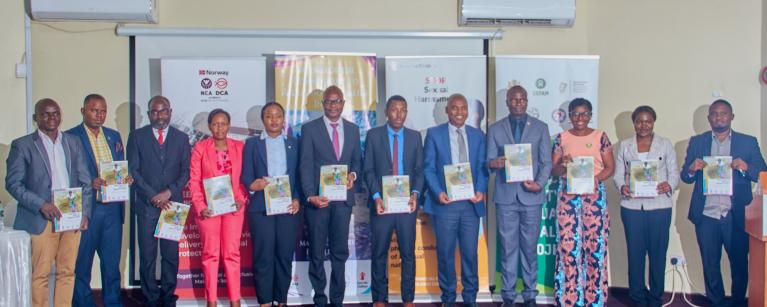Launch Alert: Tackling Inequality in Malawi
Lilongwe, Malawi – July 17, 2025
Oxfam in Malawi, NCA/DCA, Save the Children Malawi, and the Malawi Economic Justice Network (MEJN) have officially launched the Commitment to Reducing Inequality (CRI) Country Profile for Malawi 2025—a bold and urgent call to action. This landmark report highlights the stark reality of inequality in Malawi and provides a roadmap for policymakers, civil society, and citizens to work in creating a more equitable society.
“This report reveals an economy that shines for a few but leaves many in darkness. It is a development emergency,” said Dr. Bertha Bangala Chikadza, President of Economics Association of Malawi (ECAMA) and keynote speaker at the launch.
The quote from Dr. Chikadza highlights the stark reality of Malawi's economy, where a small elite enjoys significant benefits while the majority are left behind. This urgent call to action emphasizes the need for immediate policy changes to address the growing inequality gap.
Malawi remains one of the most unequal countries in Southern Africa, with the CRI report revealing a stark and disturbing picture. The wealthiest 1% of Malawians hold the same share of national income as the bottom 50%, highlighting the extreme concentration of wealth. Furthermore, the top 10% of the population owns a staggering 61% of the country's wealth, while the bottom 50% owns a mere 4%. The income disparity is equally stark, with the richest 10% controlling over half of the country's income, while the poorest 50% share a mere 10%.
The CRI report's findings are alarming, revealing a country where economic growth has not translated to improved living standards for the majority. The report's data underscores the imperative need for policy interventions that address the root causes of inequality.
Key Recommendations from the CRI Report
To reverse the tide of inequality, the report outlines four urgent policy actions:
- Develop National Inequality Reduction Plans (NIRPs) and Monitor Progress: Develop realistic, time-bound plans with annual monitoring mechanisms to track progress and ensure accountability. Monitor inequality annually, with civil society at the centre.
- Invest in Universal Public Services: Prioritize high-quality education, healthcare, and social protection to ensure all citizens have access to essential services. End austerity and invest in public services that uplift communities.
- Enforce Progressive Taxation: Strengthen tax collection, ensure the wealthy pay their fair share, and end harmful tax exemptions. Tax the super-rich, not just in law, but in practice, and stop illicit financial flows.
- Strengthen Labour Policies: Address wage inequality, improve working conditions, enforce labour rights, and raise minimum wages to living standards.
- Promote Economic Justice: Implement policies that reduce income inequality, generate revenue for public services, and promote fair labour practices, ultimately building an economy that works for everyone, not just the privileged few.
These recommendations provide a clear roadmap for policymakers to address the root causes of inequality and create a more equitable society.
“The stark of inequalities that exist underscores the imperative need for policy changes to address these disparities. The CRI Index has shown to be a powerful tool for us to track government efforts and tackle inequality to drive meaningful change,” said Mr. MacPherson Mdalla, Programme and Policy Manager, Oxfam in Southern Africa
Mr. Mdalla's statement highlights the importance of using data and evidence to inform policy decisions and track progress. The CRI Index provides a valuable framework for governments, civil society, and citizens to work together to reduce inequality.
The launch of the CRI Country Profile is more than a report—it’s a rallying cry. It challenges policymakers, civil society, and citizens alike to build an economy that works for everyone, not just the privileged few.
The launch of the CRI Country Profile marks a significant moment in Malawi's fight against inequality. It provides a clear call to action for policymakers, civil society, and citizens to work together to create a more equitable society.
For details, please download attached reports!
